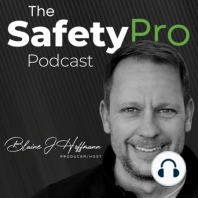33 min listen

059: 8 Critical Tips for Effective Safety Coaching
059: 8 Critical Tips for Effective Safety Coaching
ratings:
Length:
39 minutes
Released:
Feb 12, 2019
Format:
Podcast episode
Description
Powered by iReportSource Does your company help develop employees through coaching? Not to be confused with training, or even consulting, coaching is a much more collaborative process that helps to bring out someone’s best work. Two-Thirds of employees cite that coaching improved their performance within their company and also improved their satisfaction (1). Coaching sessions can include open-ended questions and discussion on personal and professional goals and objectives. If coaching happens consistently, it can strengthen relationships between managers/employees and peers. It can reinforce the right kind of behaviors you want to see in your business to promote safety and health. Last, it also helps workers have more support as they work through challenges or problems, both personally and professionally (2, 3, 4). Here are the top tips you can utilize for effective safety coaching: 1. Don’t assume leaders know how to coach Make sure leaders are equipped to start coaching before you ask them to do so. For example, a common misconception is that coaching is where specific performance feedback can be given. While coaching can influence an employee’s performance, a coaching session is not the same as a review session, even if your current reviews are informal. First, help leaders recognize that coaching is an open-ended conversation that is aimed at helping someone improve…and that is in all areas of their life. On the other hand, an evaluation is going to give specific feedback to someone regarding their performance. If coaching is what you’re after, make sure your leaders know that difference (2). Second, teach leaders how to use open-ended questions during their coaching sessions. Instead of asking a question that can be answered with a simple “yes” or a “no,” open-ended inquiries can be used to help lead someone into potential solutions. It also helps them to reflect better and to become more self-aware. These kinds of questions can also give the coach more context about a challenge someone is facing. Last, they also keep the focus on the person who is receiving the coaching. For example, if someone is having uncertainty with how to resolve a safety-related issue on their team, avoid immediately giving them potential solutions. Instead, ask them questions by using words such as “what and “how.” That could sound like: “How do you envision this process changing?” or, “What have you considered doing to change the way things are done?” By allowing them to reflect and talk out the solution, leaders can remain focused on listening. After hearing more from the person, then a coach can help the individual learn how to come up with solutions. Which will build confidence, empower the individual and help them break out of three vicious circles that author Michael Bungay Stonier describes in the book “The Coaching Habit: Say Less, Ask More & Change the Way You Lead Forever”: Creating over dependance - by you always having the answer, and others not being able to solve problems on their own. I have often said that the EHS expert’s job is NOT to be the only one that understands the safety requirements and hazard mitigation techniques of someone else’s job. It is to ensure that those doing the work, facing potential hazards are able to so. This requires a coach! Getting overwhelmed - you will become bombarded with everyone else’s problems. Which creates a classic bottle-neck! You want to avoid this because hazards/issues will persist in the work environment as a result of YOU not being able to deal with them. Folks will learn it takes too long to get anything addressed and stop saying anything! Becoming disconnected - You will get disconnected from the work that matters - which is creating a sustainable culture of accountability, empowerment, and productivity. You need to free yourself up from the first two circles to focus on the work that will make the most impact on the organization (6). Getting good at coaching takes practice, b
Released:
Feb 12, 2019
Format:
Podcast episode
Titles in the series (100)
023: OSHA Outreach Training Issues: Safety Training vs OSHA Outreach Training by The Safety Pro Podcast